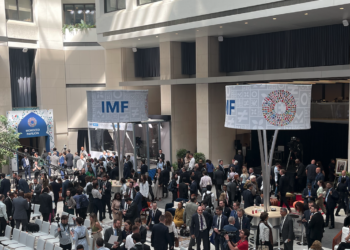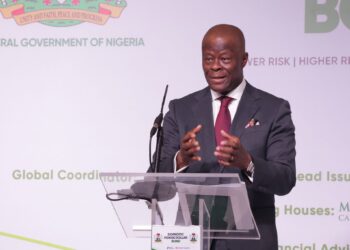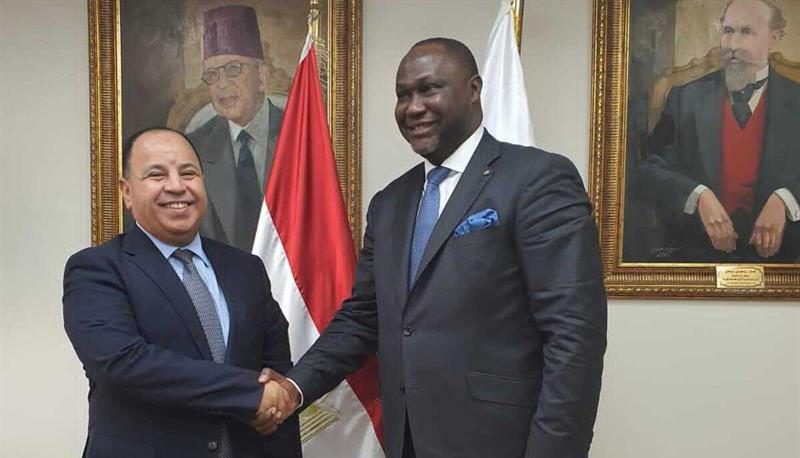The Lagos based, Pan-African multilateral development financial institution, African Finance Corporation (AFC), has successfully issued a Eurobond at its lowest yield to date.
This is an indication of robust global investor interest in the African continent and the development financial institution which is dedicated to infrastructure financing and investment across key sectors in the continent.
This disclosure is contained in a press statement issued by AFC a few days ago.
READ: AFC acquires $200 million, $100 million credit facility
According to the statement from AFC, the US$750 million 2.875% 144a/ Reg S Notes, which is due in 2028 was priced at 175 bps over US Treasuries to yield 2.991% adding that the Corporation has progressively reduced its funding cost on the dollar benchmark issuances with a shorter-dated 5-year US$700 million Eurobond in 2020 at 3.250%, a 10-year US$500 million Eurobond in November 2019 at 3.895% and a 7-year US$650 million Eurobond in June 2019 at 4.500%.
AFC is focused on bridging Africa’s large infrastructure deficit by financing projects that have high developmental impact on the economies of African countries. The final order book was 3.5 times oversubscribed at approximately US$2.6 billion, with funds coming from more than 200 investors, across the UK (32%), Continental Europe (23%), Middle East (22%), Asia (13%), and the US/Americas (10%).
What the President/CEO of AFC is saying
The President/CEO of AFC, Samaila Zubairu, said, “This reflects investor confidence in AFC’s mandate and investment strategy, which is particularly critical at a time when the COVID-19 pandemic has challenged Africa’s development.
“AFC will continue to mobilize capital for investments to accelerate sustainable development impact with a greater focus on reducing Africa’s energy deficit and job creation challenges through climate-resilient infrastructure, energy transition and other projects driving Africa’s economic recovery post-COVID.”
This is the sixth Eurobond under AFC’s US$5 billion Global Medium-Term Note programme, which is rated A3 by Moody’s Investors Service.
The AFC is expected to use proceeds from the bond to continue investing in critical infrastructure that delivers on its long-term vision to drive social, economic and sustainable change across Africa.
READ: CIBN: Our economic challenges are of a global dimension – Emefiele
Senior Director & Treasurer of AFC, Banji Fehintola, said:
“This successful issuance follows a year of severe market disruption exacerbated by the COVID-19 pandemic. The appetite and pricing are an endorsement of the Corporation’s long-term prospects and reflects our strong credit profile and established market presence. We are also delighted with the strong demand from a diverse pool of accounts, which has further diversified our funding sources.”
The bond issuance was arranged by BofA Securities, First Abu Dhabi Bank, Goldman Sachs International, J.P. Morgan and MUFG as Joint Bookrunners with White & Case, Clifford Chance and Aluko & Oyebode as legal advisers.
What you should know
The AFC, which was established in 2007 by sovereign African states to provide pragmatic solutions to Africa’s infrastructure deficit and challenging operating environment, bridges the infrastructure investment gap through the provision of debt and equity finance, project development, technical and financial advisory services.
The corporation focuses its investments across 5 key sectors which include Power, Transport and Logistics, Natural Resources, Telecommunications and Heavy Industries.
AFC is majorly owned by African private investors (55.3% equity of the corporation) with 44.7% owned by the Central Bank of Nigeria.
As of April 2020, AFC has 26 member states which include Nigeria (host country), Benin, Cape Verde, Chad, Côte d’Ivoire, Djibouti, Eritrea, Gabon, Gambia, Ghana, Guinea, Guinea Bissau, Kenya, Liberia, Madagascar, Malawi, Mauritius, Rwanda, Sierra Leone, Togo, Uganda, Zambia and Zimbabwe.
Africa Finance Corporation, to date, has invested over US$ 6.6 billion in infrastructure projects, across 28 African countries.























